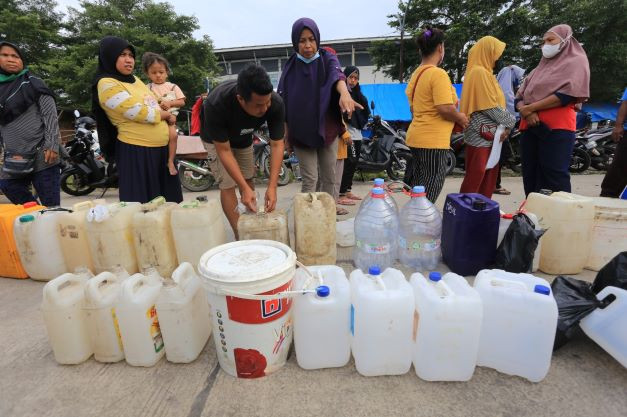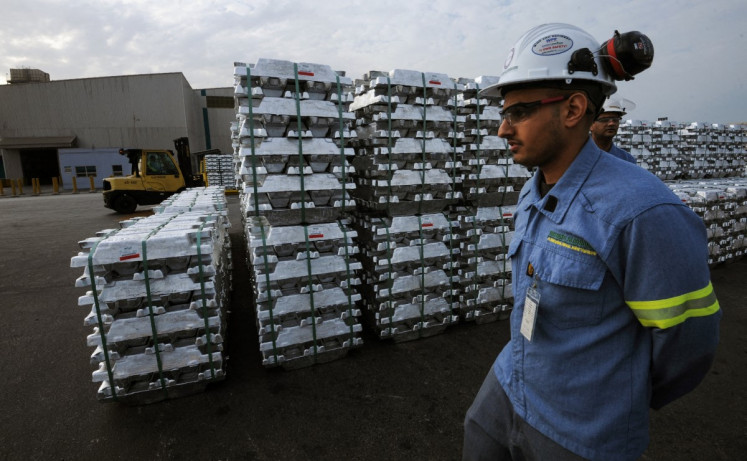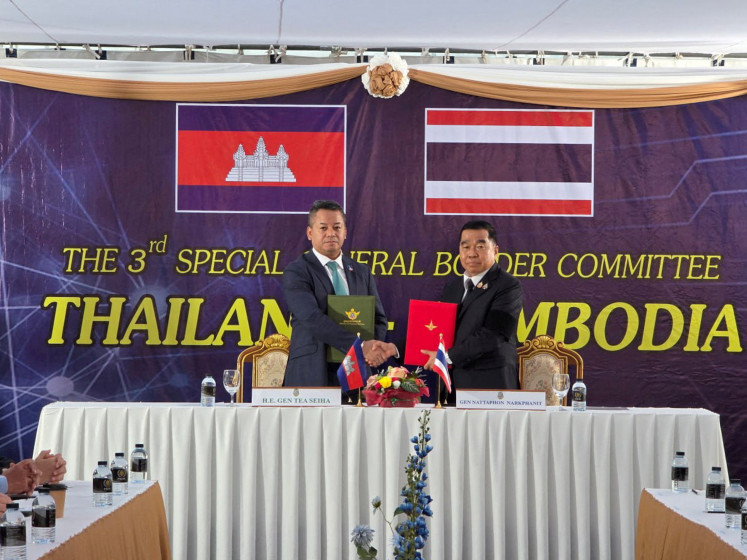Popular Reads
Top Results
Can't find what you're looking for?
View all search resultsPopular Reads
Top Results
Can't find what you're looking for?
View all search resultsCooking oil price still high
Whatever new policy measure President Joko “Jokowi” Widodo will take within the next few days, it should include the assignment of a special agency to manage the DMO and fixed ceiling prices.
Change text size
Gift Premium Articles
to Anyone
T
rade Minister Muhammad Lutfi’s concerted efforts over the past three months to keep the retail price ceiling of cooking oil to between Rp 11,500 (80 US cents) and Rp 14,000 per kilogram have been ineffective.
He even took the bull by the horns in late January by legally requiring crude palm oil (CPO) and olein producers to sell 20 percent of their export volume to domestic cooking oil factories at the domestic price obligation, which is only half the figure of international prices. He further strengthened the policy last week by increasing the domestic market obligation (DMO) to 30 percent. But the price of cooking oil remains high in many cities.
The problem is not a lack of supply, as Indonesia is the world’s largest producer of palm oil with an output of over 55 million tons last year. The latest data shows that the country even exported 16 million tons of cooking oil last year.
The crux of the problem is that international oil prices have more than doubled over the last two years and the positive market economics tells producers to export to maximize profits. But when the government pursued normative economics by controlling domestic prices to protect consumers, it forgot one very important thing: It did not assign a special agency to manage the market-control mechanism.
The Trade Ministry cannot manage the market control by itself, especially because the wide disparity between DMO prices and free-market prices is so wide that the palm oil or olein allocated for DMO is prone to export smuggling in view of the vast, porous coastal areas across the archipelago.
With Idul Fitri holidays – when household spending usually soars – only two months away, the cooking oil debacle must be addressed as soon as possible. Whatever new policy measure President Joko “Jokowi” Widodo will take within the next few days, it should include the assignment of a special agency to manage the DMO and fixed price ceiling.
In this case, we think, the State Logistics Agency (Bulog) with its nationwide points of distribution and warehouses is the most qualified to manage the supply and distribution of cooking oil.
Bulog can be assigned to procure bulk and simple packaged cooking oil from producers at the DMO price, and sell the oil at the same price plus a government-fixed margin to retailers who then sell the oil at a fixed retail price ceiling. Bulog can also distribute its stock through market operations to quickly address any shortage in specific areas.
Certainly, Bulog’s procurement capacity should be substantial enough to enable it to drive the market equilibrium price to the fixed price ceiling and to caution off potential hoarders. Bulog’s initial working capital for market operations can be derived from the Palm Oil Plantation Fund Management Body (BPDPKS), which collects surcharges from palm oil exports.
The BPDPKS, which last year spent almost Rp 52 trillion on biodiesel subsidies, still has enough funds to finance Bulog’s cooking oil market operations. Given the risk of inflation, Bulog’s cooking oil market operations should be prioritized over biodiesel subsidies.











